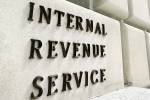EDITORIAL: The death tax
It’s often said that there are two certainties in life: death and taxes. But that’s not quite enough for progressives. They seek to combine the two by advocating for massive taxes after death. And if Democratic presidential nominee Hillary Clinton has her way, there will be hefty escalator clauses to the estate tax.
As Robert W. Wood wrote for Forbes last month, current law exempts estates worth $5.45 million or less. Beyond that, you pay 40 percent. Mrs. Clinton previously called for lowering the threshold from $5.45 million to $3.5 million, and upping the tax rate to 45 percent. However, she now wants a 50 percent, 55 percent and 65 percent rate, for estates worth more than $10 million per person, $50 million per person and $500 million per person, respectively.
Many Americans may shrug and figure that since it won’t apply to them, who cares?
But consider that this money has already been taxed once when it was first earned as income — and likely at a total rate of 50 percent when counting federal, state and local levies.
While the death tax may exempt most households, it’s often the case that estates include family companies. It’s not that hard for such a business to meet the current $5.45 million threshold, and as Mr. Wood noted, the current tax rate can force the sale of family companies, farms and ranches. In fact, the very wealthy rarely pay the tax, shielding themselves with an army of accountants and estate planners.
In a blog post last month, cartoonist Scott Adams — creator of “Dilbert” — made a cogent case against the the grave robbers. “In my case, a dollar I earn today will be taxed at about 50 percent by various government entities, collectively,” he wrote, “With Clinton’s plan, my remaining 50 cents will be taxed again at 50 percent when I die. So the government would take 75 percent of my earnings from now on.”
Mr. Adams pointed out that there are ways to avoid or lessen the tax, but then he’d just end up paying attorneys instead of the state. His bottom line: “I oppose the estate tax because I was born to modest means and worked seven days a week for most of my life to be in my current position. And I don’t want to give 75 percent of my earnings to the government. (Would you?)”
Proponents of the death tax often claim the high ground, but on what moral basis do they lay claim to the treasure of those whose sweat and enterprise provided them the financial means to live comfortably? On what ground do government agents deny the wealthy the right to share their prosperity with whomever they choose? “If it is my property to dispose of as I see fit while I am alive,” wrote Jeffey Dorfman of Forbes magazine, “how does the property become society’s at the moment of my death?”
From a pure fiscal standpoint, the tax is largely irrelevant. Mrs. Clinton’s plan would raise $260 billion over the next 10 years, an average of $26 billion per year — an amount the federal government spends in less than a week. Instead of seeking ways to confiscate more of Americans’ hard-earned gains, Mrs. Clinton should be looking for more ways to let citizens keep their money.























